
HOW DID THE OTTOMAN DYNASTY SURVIVE IN EXILE?
When they were deported, they were given a one-way passport and an amount of 1000 British pounds. It was very clear that for generous, benevolent individuals accustomed to doing good deeds and living at a certain standard, this money would only manage for a very short time.
Bitter Truth
They had neither their money in foreign banks nor family ties to support them among other dynasties. The financial situation of the dynasty, even while still in the country, had never been good except for one or two members. Within three days, they sold their movable property at a fraction of its value. Their estates were also squandered in the hands of various individuals.
The cash they had with them sustained them for a short while. After selling the jewelry they could take and the valuable but lightweight items, the bitter truth emerged in all its starkness. They had thought the exile would last only a few months. What were they to do now?
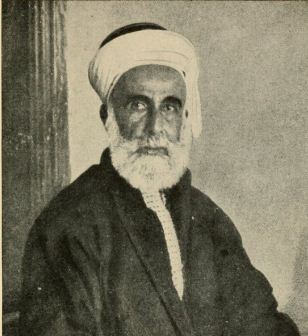
British Blocking
Hijaz Sharif (King of Mecca) Hussein bin Ali issued a declaration on March 11, 1924: "The services rendered by the Ottoman family to Islam and Muslims are undeniable; their heroism cannot be belittled. The recent decision regarding the family [exile] has pierced the hearts and saddened the spirits of Muslims. Therefore, we see it as an obligation of Islamic brotherhood to meet the needs of the family and prevent them from experiencing financial difficulties. Those who wish to participate in this great endeavor should express their intentions to our representatives in Mecca." Despite being a financially challenged ruler, Sharif sent 2400 liras to the Sultan in San Remo.
However, to avoid upsetting Ankara, the British did not want the Ottoman dynasty to have financial means. They turned away those seeking help, citing that there was "no place in the budget" for such assistance. Upon learning of the dire situation of the dynasty, the Nizam of Hyderabad wanted to provide substantial aid. To convince the British, he emphasized that the Caliph was penniless and on the verge of starvation. The English reports from this period regarding the matter are indifferent and even condescending towards the family's poverty. Letters written by the princes to the English and French governments, as well as to the rulers of India, pleading for help, are heartbreaking to read.
Thus, the initial years of exile passed in unbelievable destitution. Due to unpaid debts, creditors even placed a lien on the coffin of Sultan Mehmed VI Vahideddin. His debts were paid off by Faisal I of Iraq and Abdullah I of Jordan. Some had pinned their hopes on the legendary overseas inheritance of Sultan Abdul Hamid II. A few companies even provided a small advance to members of the dynasty to pursue this matter. However, this endeavor was thwarted by the London-Ankara consortium.
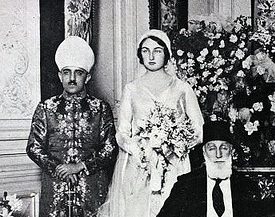
Marriage That Gave a Sigh of Relief
In 1931, when Princess Durru Shehvar, the daughter of Caliph Abdulmejid II, married the son of the Nizam of Hyderabad, a part of the dynasty could breathe a sigh of relief. The Nizam, within the limits allowed by the British, put the dynasty on a salary. However, when this amount, which did not reach everyone, was distributed to individuals, it remained very minimal. After the Second World War, when India was established and the Nizam went into exile, this source of income was also cut off.
Those who married Egyptian princes also experienced a relative prosperity. Throughout the exile, the greatest favor to the dynasty was shown by Egyptian Princes Omar Tossoun and Youssef Kamal. Princess Mahwash arranged a monthly salary of 15 liras for the ladies of the dynasty from the endowments. In 1952, a coup took place in Egypt, and with the overthrow of the monarchy, these princes, whose properties were seized, were exiled. This marked a second disaster for the dynasty.
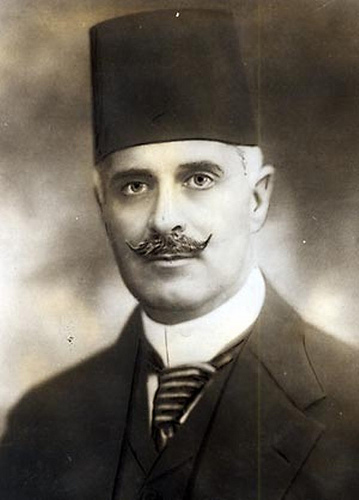
Allah Is With Those Who Are Patient
Those who did not receive sufficient allowances or whose allowances were inadequate were compelled to work. However, they lacked a profession and career. These individuals were not trained for any specific job. Princes were trained as soldiers, but this did not hold much value in a foreign land.
Due to the lack of capital, members of the dynasty who could not establish businesses were hindered by Ankara from taking official duties, with the threat that diplomatic relations could be strained. As many of them were stateless, despite knowing several languages and having education, it was legally impossible for them to practice any profession. Ankara attempted to prevent them from entering public service or marrying wealthy individuals. The Second World War made members of the dynasty suspicious persons in many countries.
In foreign lands where your name and military diploma were of no use, the only thing that could bring in money was playing a musical instrument. Many princes tried to earn their livelihood by playing instruments in cafes, much like Gypsy musicians. Members of the dynasty engaged in various jobs such as weighing goods, porterage, taxi driving, cemetery guarding, museum ticketing, peddlery, and dishwashing, trying to make ends meet.
Ayşe Sultan (daughter of Sultan Abdul Hamid II), selling everything she had to make ends meet, embroidered the Quranic verse "Innallah Ma Assaabireen" meaning "Allah is with those who are patient" on fabric by hand. Her son would then sell these on the streets and in the metro at night. The elderly couldn't even do this. The young ones agreed to marriages, whether they were suitable or not.
Only Shahzadeh Mehmed Burhaneddin found a job in an oil company; he and his sons lived a prosperous life as a result. The Caliph and some members of the dynasty managed to lead a modest life by using their wealth judiciously or with the help of friends and family. Others, however, lived in hopeless poverty.
There were members of the dynasty who, at night, collected spoiled fruits and vegetables from the markets. They kept this a secret from everyone; they didn't want anyone to pity them. Indeed, "The most unbearable burden on a tiger's back is mercy." As the children grew, they managed by cutting the tips of their shoes as their feet enlarged.
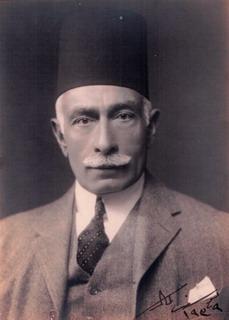
Helping Hand
The troubled dynasty occasionally received assistance from the common people. A Greek youth, whom Shahzadeh Ahmed Nuri had once helped, provided some assistance. The owner of a small hotel room where Zekiye Sultan stayed in Pau did not charge any fees. An Armenian woman took care of the medicine and treatment for Behiye Sultan when she fell ill in Cairo. A Russian prince, whom Sami Bey had once aided in Istanbul, extended a helping hand.
Shahzadeh Ahmed Nuri was found dead of hunger in a park. Unable to endure poverty, Shahzadeh Abdurrahim Hairi took his own life. Hadija Samy, the granddaughter of Mediha Sultan, who relied on municipal aid, also ended her life by jumping out of a window due to these hardships.
Arife Kadriye Sultan, who fell into extreme poverty, became addicted to morphine to cope with her pain and passed away shortly thereafter. Her two daughters ended up in an orphanage.
In Nice, France, Fehime Sultan, who had nothing left in her hands, contracted tuberculosis. Despite her loyal black female servant managing to cook a soup for her master with the three to five francs she collected begging on the streets at night, Sultan bid farewell to life, escaping the sorrows of the world.
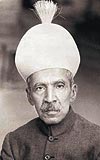
Many Sacrifices
Naciye Sultan states in her memoirs: "Other dynasties, foreign to their own people in terms of race, might have taken precautions to meet their needs outside the country, considering such a possibility [exile]. However, we never entertained the idea of keeping reserve funds outside the country. Whatever we received from the rapid liquidation of our assets, both movable and immovable, when leaving, became our means of living abroad.
In a foreign environment, among people speaking a foreign language, many of us struggled to manage with what we had, amidst the inexperience of life. While some of us initially led an uncalculated, carefree life, financial difficulties eventually arose. That was when many found themselves surprised.
As the years passed, instances of poverty and disasters among us became increasingly apparent, stark in their reality. Due to our extreme caution in not showing these to outsiders, we sometimes learned about such events late among ourselves, causing delays in providing assistance. In recent years, some of our elderly members couldn't afford medicine for their illnesses. After selling everything of value, there were many who, in the middle of winter, sold their coats to procure food, contracting pneumonia as a result and passing away.
In a desolate corner, there were those among us who considered it shameful to reveal their poverty even to their own relatives. They silently and without complaint passed away, and their funerals, funded by the allocations reserved by local municipalities for the poor, were conducted. Some were buried in unmarked, anonymous graves in public cemeteries without revealing their identities. I mention this not as a complaint but to emphasize that among the sacrifices made for the well-being and safety of the country, the homeland, the Ottoman family also had a small share."
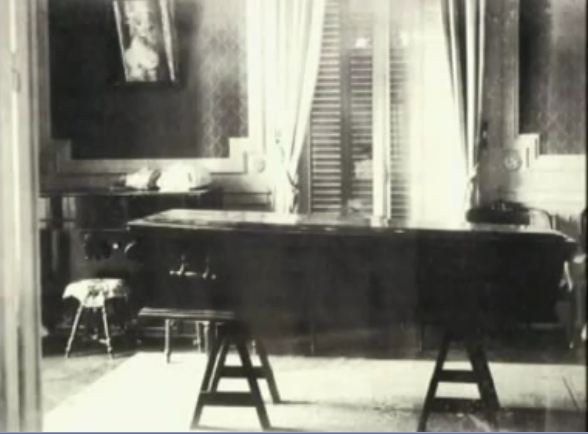
Seeking Solutions
As the exile progressed, the dynasty slowly began to understand the challenges they were facing. They sought solutions to cope with these difficulties and attempted to establish a society among themselves. The idea was to address matters such as inheritance claims, education for children and youth, marriages, assistance to those in need, and funeral arrangements for the deceased. However, the scattered family could not come together, making it impossible to implement these plans.
Material and spiritual calamities did not cease for the dynasty even after their return to Türkiye. The elderly sultans who returned to the country based on the 1952 law searched in vain for their old privileges. The state, which took care of the families of individuals who worked as civil servants for even a few years, did not extend the same care to them. There were, however, some benevolent citizens who reached out to assist them.
The situation of the remaining members of the dynasty who stayed in the country was not at all promising.. Although Sultan Hamid's surviving wife applied to the government and requested a salary as the widow of the head of state and the commander-in-chief of the army, it was rejected. Attempts to claim the inheritance were also thwarted by the London-Ankara consortium. When Adnan Menderes came to power, he arranged for some members of the dynasty to receive salaries from the secret fund and allowed the return of the ladies from exile.
The generation who were born in exile has now established a life for themselves, finding employment and engaging in various activities in the places they reside.
Önceki Yazılar
-
NO MARRIAGE WITHOUT PERMISSION!24.07.2024
-
THE TRUTH OF KARBALA17.07.2024
-
CONTRIBUTIONS OF THE TURKS TO ISLAM10.07.2024
-
OUR TRADITION OF THE ENTARI (JALLABIA ) HAS YIELDED TO TIME3.07.2024
-
GALLOPING THROUGH HISTORY: THE OTTOMAN EMPIRE'S POSTAL COURIERS26.06.2024
-
SUMMER HAS COME, LET'S GO ON AN EXCURSION...19.06.2024
-
HOW DID THE TURKS LOSE THE ARAB LANDS?12.06.2024
-
IT WAS AN ART OF EXECUTIONER...5.06.2024
-
ARAB NATIONALISM AND THE TURKS29.05.2024
-
HOW DID TURKS BECOME MUSLIM?22.05.2024